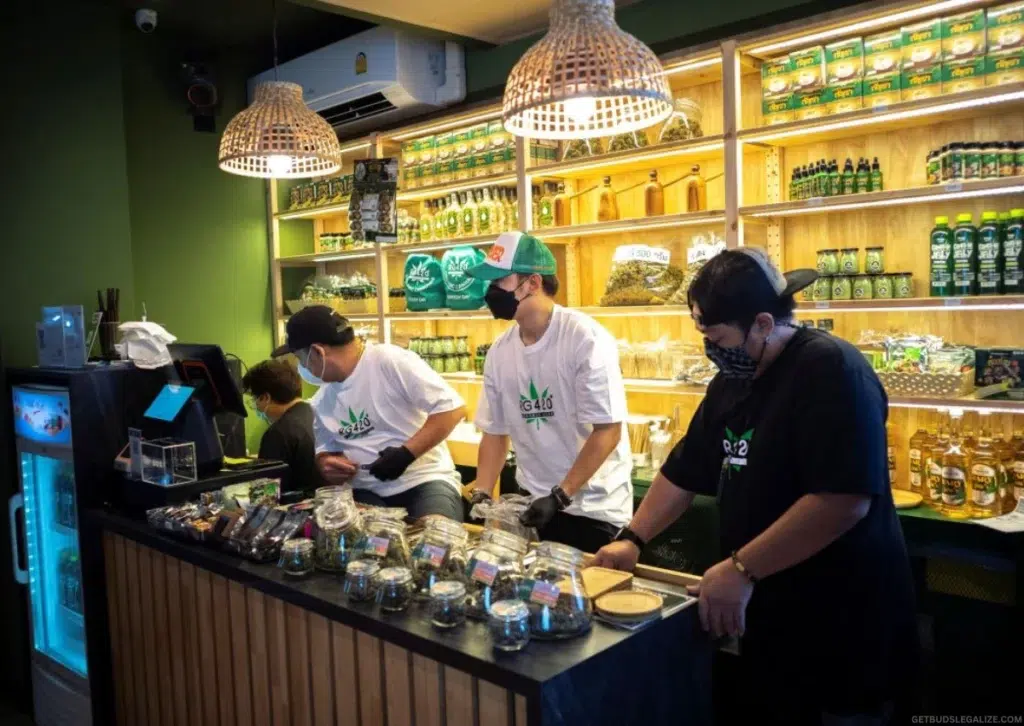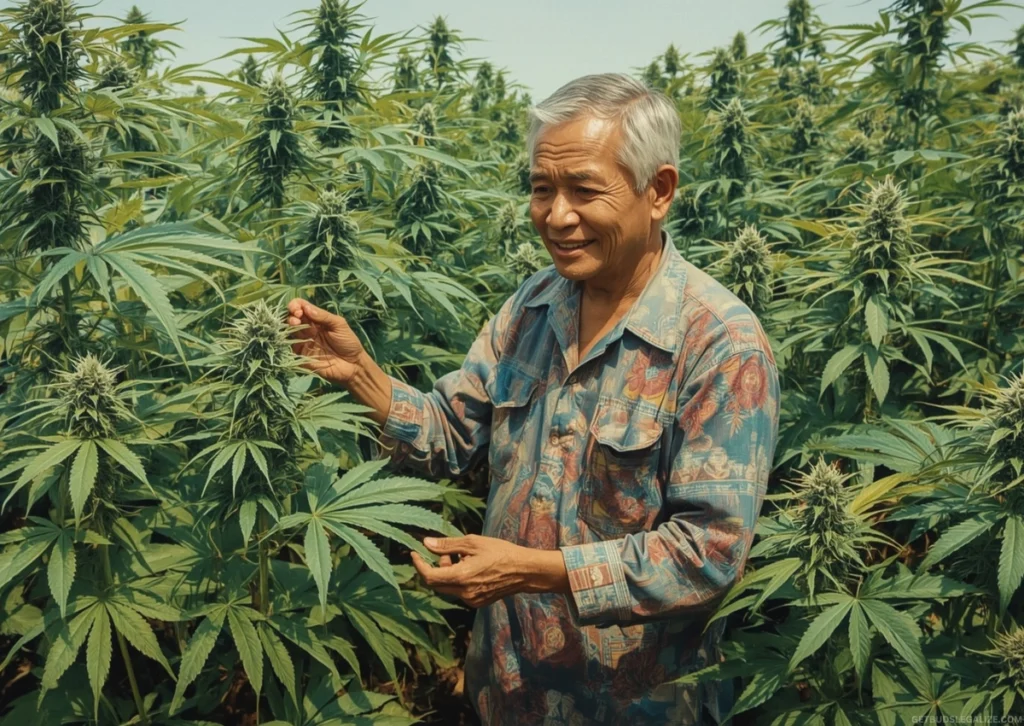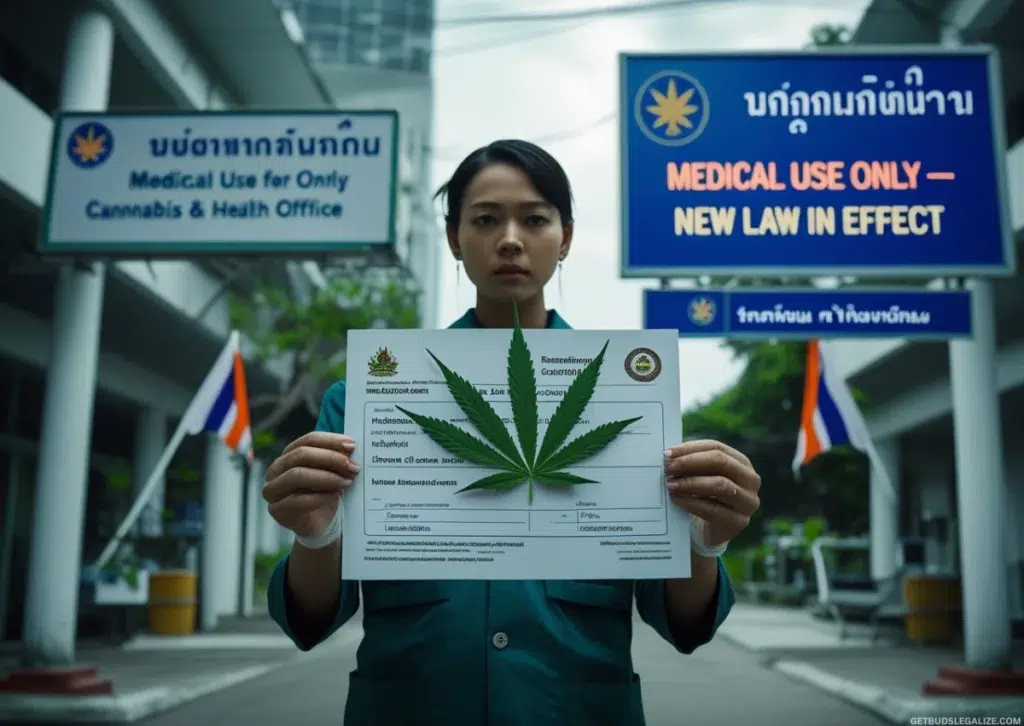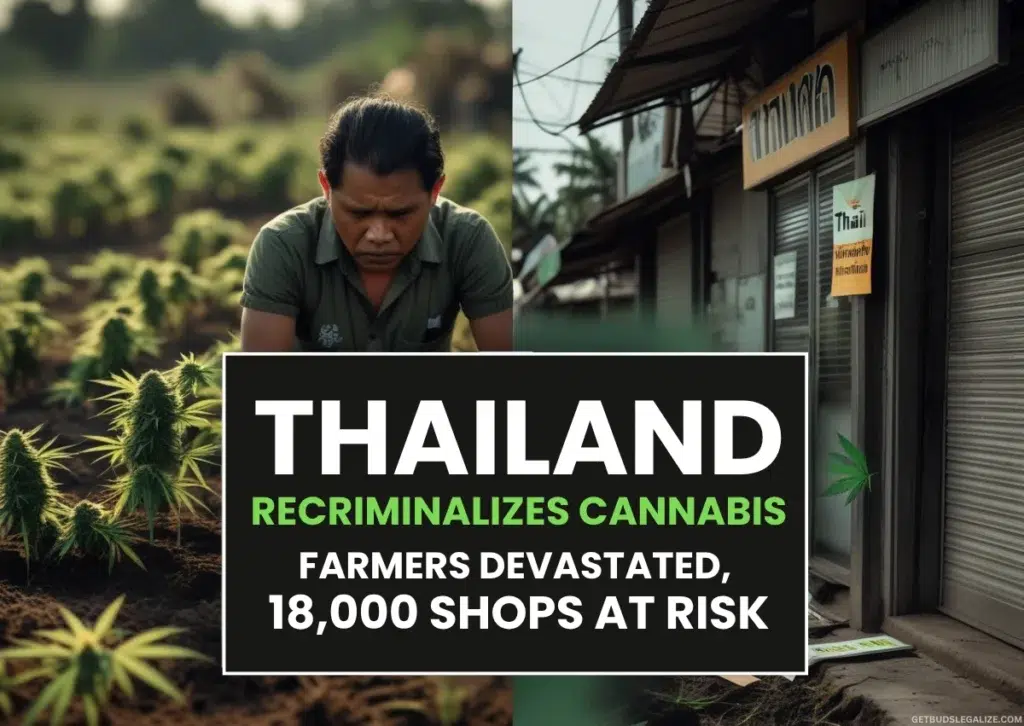Thailand’s New Cannabis Law Explained: Prescriptions, Permits, and Public Pushback
BANGKOK—Thailand’s brief era of liberal cannabis regulation is drawing to a sudden and controversial close. Just two years after the country decriminalized cannabis, the Ministry of Public Health is rolling out new restrictions that tighten access to cannabis products and reframe the industry firmly under medical control.
The proposed rules, announced by Dr. Tewan Thanirat, Deputy Director-General of the Department of Thai Traditional and Alternative Medicine (DTAM), will require cannabis retailers to operate with official permits and maintain detailed records for every flower sale.
Prescriptions Now Mandatory for Cannabis Purchases
Under Thailand’s updated cannabis laws, the sale of cannabis flower is restricted to patients with a valid medical prescription. Buyers must present a doctor’s certificate detailing their medical condition, recommended dosage—typically not exceeding one gram per day—and the expected duration of treatment.
Cannabis retailers must securely archive patient prescriptions and related purchase records for no less than one year to meet government inspection and compliance requirements.
Dr. Tewan emphasized that cannabis cannot be dispensed without proper medical authorization. Dispensaries must ensure every sale is backed by legitimate documentation, which must be available for regulatory review.
Additionally, all cannabis dispensaries must have qualified medical personnel present during business hours. This may include a licensed physician, a certified pharmacist, or a practitioner accredited in traditional Thai medicine.
Retailers are also required to obtain local administrative approval—an effort partly aimed at addressing growing complaints about cannabis odor and its impact on surrounding communities.
Related Article:

Tighter Controls on Cultivation
Growers are also facing stricter requirements. While home cultivation remains legal without a license, once flower buds are harvested, they are classified as a controlled substance.
To legally sell cannabis, growers must comply with one of the following standards:
- Thai GACP (Good Agricultural and Collection Practices)
- EU GMP (Good Manufacturing Practice)
- Thai Organic certification
These rules are expected to significantly increase compliance costs and regulatory pressure, especially for small-scale cultivators who previously operated under less rigid oversight.
Public Outcry Prompts Temporary Delay
The ministry’s announcement triggered immediate backlash from cannabis business owners, who argue that the sudden policy shift offers little time to adjust.
In response to the mounting criticism, Public Health Minister Somsak Thepsuthin announced a 30–60 day delay in enforcing the new prescription and cultivation rules.
“We need to consult with medical councils and stakeholders before implementing this change,” said Somsak. “The delay won’t be long, but all parties must be heard.”
Existing Regulations Still Apply
Although full enforcement is temporarily delayed, existing rules remain in effect. All licensed dispensaries are expected to continue filing detailed monthly reports documenting their inventory levels and sales activity, as per existing legal obligations.
Failure to comply—or submitting false documentation—can result in license suspension or criminal charges.
Furthermore, the sale of cannabis-infused snacks, gummies, or any edible product remains strictly prohibited under current Thai law, according to reports from Matichon and Channel Weez TH.

Personal Use Still Legal, Sales Are Not
Individuals may still cultivate cannabis at home for personal use without needing to register with authorities, as long as it is not intended for sale. However, selling homegrown cannabis—even in small quantities—is strictly illegal.
Once the new regulations are fully enforced, individuals found in possession of cannabis without a prescription may face:
- Up to 1 year in prison
- A fine of 20,000 baht (approx. 540 USD)
Related Article:
An Uncertain Future for Cannabis in Thailand
This abrupt regulatory shift represents a major reversal for Thailand’s cannabis industry, which had flourished in a loosely regulated environment since 2022.
Industry advocates warn the new laws could dismantle a fledgling market that created opportunities for small entrepreneurs and farmers. Government officials, however, argue the changes are essential to re-establish medical oversight and prevent the misuse of cannabis products.
As Thailand navigates the next chapter of cannabis regulation, one thing is clear: the country’s once-liberal cannabis landscape is giving way to a highly controlled, prescription-based model.
Frequently Asked Questions (FAQs): Thailand’s New Cannabis Laws in 2025
Thailand’s Ministry of Public Health is enforcing stricter cannabis regulations to control medical use and limit recreational access. Key changes include:
- Mandatory sales permits for cannabis retailers
- Requirement to record and store detailed cannabis flower sales documentation
- On-site presence of medical professionals such as doctors or pharmacists
- Approval from local administrative organizations due to cannabis odor concerns
The intent behind these policies is to realign Thailand’s cannabis sector with strictly medical applications, moving away from the previously lenient framework.
No. Under the updated Thailand cannabis laws, purchasing cannabis flower without a certified medical prescription is illegal. Customers must present:
- A doctor-issued medical certificate
- Dosage recommendation (typically up to 1 gram/day)
- Duration of treatment
Retailers must store these documents for inspection for at least one year.
Yes, for personal use only. Residents in Thailand are allowed to cultivate cannabis at home for personal use without needing to register, provided it’s not intended for distribution or sale., but:
- Selling homegrown cannabis is illegal
- Harvested buds are regulated and considered controlled substances
- Cannabis grown for commercial use must meet certification standards
To legally cultivate and sell cannabis in Thailand, growers must obtain one of the following certifications:
- Thai GACP (Good Agricultural and Collection Practices)
- EU-GMP (Good Manufacturing Practice)
- Thai Organic certification
These certifications ensure compliance with medical-grade cannabis production standards.
No. The sale of cannabis-infused edibles, such as snacks, gummies, baked goods, or drinks, remains prohibited in Thailand. Only approved medical forms of cannabis are allowed under the law.
Partially. Existing cannabis laws—including mandatory monthly reports for licensed dispensaries—are in effect. However, full enforcement of the prescription-only sales rule and cultivation certification requirements has been delayed by 30–60 days to allow for public consultation and industry feedback.
Once enforcement begins, possessing cannabis without a valid prescription could lead to:
- Up to 1 year in prison
- A 20,000 baht fine (approximately $540)
- Confiscation of the cannabis
Only individuals with medical documentation will be permitted to carry cannabis legally.
Thai authorities have outlined multiple motivations for implementing tighter cannabis laws, including:
- Reinforcing cannabis as a medical-use-only substance
- Addressing public complaints about cannabis odors
- Preventing misuse due to legal loopholes
- Standardizing cultivation under medical safety certifications
Many industry members fear the shift will damage Thailand’s emerging cannabis economy, especially for small growers and shops.



















